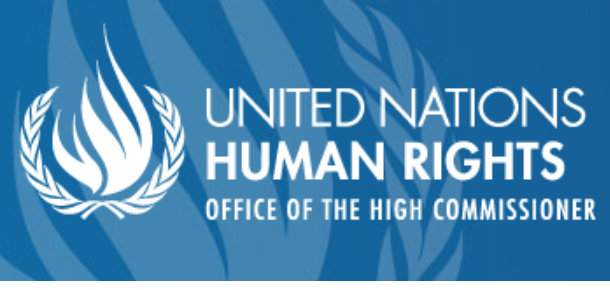UN: Fastest, Broadest Broadband Possible is Priority in Time of Coronavirus
The smarter way to stay on top of the multichannel video marketplace. Sign up below.
You are now subscribed
Your newsletter sign-up was successful
The UN and other human rights organizations says that during the coronavirus pandemic, it is crucial that governments provide accurate information about the nature of the threat, and that the internet is free to relay that information.

That came in a joint statement from the United Nations, the Inter-American Commission for Human Rights, and the Representative on Freedom of the Media of the Organization for Security and Co-operation in Europe.
"[G]overnments should, as a matter of priority, ensure immediate access to the fastest and broadest possible internet service," they said.
ISPs in the U.S. have been boosting speeds and offering free service in service of that goal, with the encouragement of the FCC.
Related: ISPs Take FCC Connectivity Pledge
While South Africa has criminalized disinformation about the virus, the UN and others had a word of caution (the Committee to Protect Journalists calls that a slippery slope, though likely legally sustainable).
The organizations also weighed in on providing faster broadband and avoiding privacy violations when using new tech to track the spread of the disease, an issue that has concerned U.S. legislators.
The smarter way to stay on top of the multichannel video marketplace. Sign up below.
The organizations urged the following:
“First, it is essential that governments provide truthful information about the nature of the threat posed by the coronavirus. Governments everywhere are obligated under human rights law to provide reliable information in accessible formats to all, with particular focus on ensuring access to information by those with limited internet access or where disability makes access challenging.
“Second, internet access is critical at a time of crisis. It is essential that governments refrain from blocking internet access; in those situations where internet has been blocked, governments should, as a matter of priority, ensure immediate access to the fastest and broadest possible internet service. Especially at a time of emergency, when access to information is of critical importance, broad restrictions on access to the internet cannot be justified on public order or national security grounds.
“Third, the right of access to information means that governments must be making exceptional efforts to protect the work of journalists. Journalism serves a crucial function at a moment of public health emergency, particularly when it aims to inform the public of critical information and monitors government actions. We urge all governments to robustly implement their freedom of information laws to ensure that all individuals, especially journalists, have access to information.
“Fourth, we share the concern that false information about the pandemic could lead to health concerns, panic and disorder. In this connection, it is essential that governments and internet companies address disinformation in the first instance by themselves providing reliable information. That may come in the form of robust public messaging, support for public service announcements, and emergency support for public broadcasting and local journalism (for instance, through government health advertisements).
Resorting to other measures, such as content take-downs and censorship, may result in limiting access to important information for public health and should only be undertaken where they meet the standards of necessity and proportionality. Any attempts to criminalize information relating to the pandemic may create distrust in institutional information, delay access to reliable information and have a chilling effect on freedom of expression.
“Fifth, we are aware of growing use of tools of surveillance technology to track the spread of the coronavirus. While we understand and support the need for active efforts to confront the pandemic, it is also crucial that such tools be limited in use, both in terms of purpose and time, and that individual rights to privacy, non-discrimination, the protection of journalistic sources and other freedoms be rigorously protected. States must also protect the personal information of patients. We strongly urge that any use of such technology abide by the strictest protections and only be available according to domestic law that is consistent with international human rights standards."
Contributing editor John Eggerton has been an editor and/or writer on media regulation, legislation and policy for over four decades, including covering the FCC, FTC, Congress, the major media trade associations, and the federal courts. In addition to Multichannel News and Broadcasting + Cable, his work has appeared in Radio World, TV Technology, TV Fax, This Week in Consumer Electronics, Variety and the Encyclopedia Britannica.

